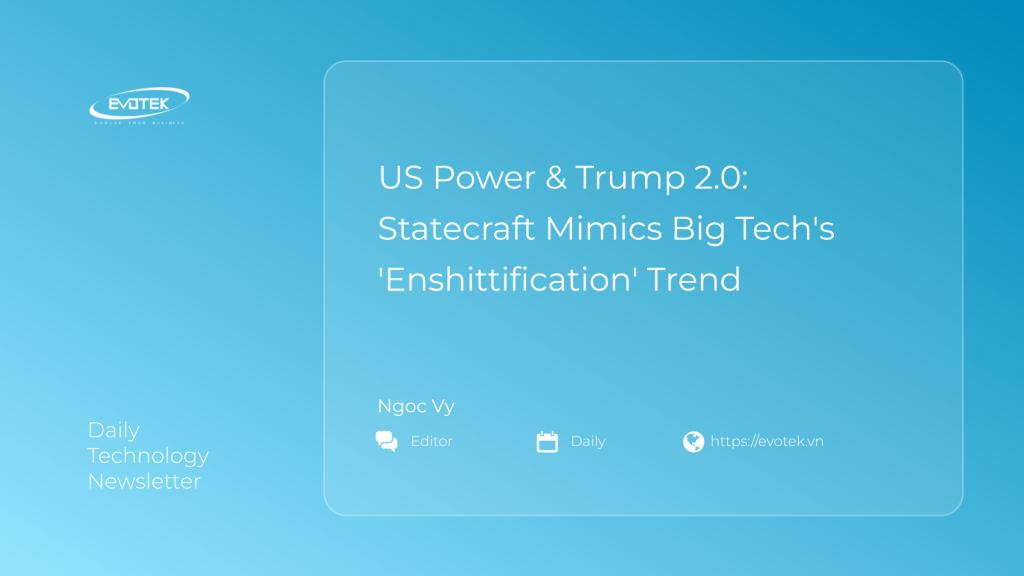A striking parallel is emerging between the operational shifts of tech giants like Google and Facebook and the potential future of American statecraft. Under a prospective Trump 2.0 administration, there’s a growing concern that United States foreign policy could begin to mirror the contentious ‘enshittification’ phenomenon, long observed within the digital realm.
For many decades, nations allied with the United States have found stability and comfort within the extensive framework of American global leadership. These partners have historically built critical national infrastructure—including their financial systems, communication networks, and defense capabilities—upon foundations and systems largely provided or underpinned by the United States. This era saw global allies thrive amidst a predictable and largely supportive American hegemony.
From Digital Platforms to Statecraft: A Troubling Parallel
The term ‘enshittification,’ popularized in the context of platforms like Google and Facebook, describes a cycle where services initially attract users by offering value, then progressively degrade the user experience to extract more profit or control. This can manifest as increased advertising, reduced functionality, or a shift in focus away from user benefit towards the platform’s self-interest. Applied to international relations, this concept suggests a worrying future for US foreign policy and its impact on global allies.
Should American statecraft adopt such tendencies, it could mean a departure from the collaborative, reliable leadership that has defined its global role. Instead of consistently providing shared benefits and stability, US actions might become more transactional, less predictable, and ultimately, less beneficial to its partners, even as the U.S. attempts to leverage its dominant position.
Implications for Global Allies and US Hegemony
The implications for countries that have long relied on the existing architecture of US hegemony are profound. Their carefully constructed financial institutions, deeply integrated communication systems, and interdependent national defense strategies could face unprecedented challenges. A shift towards an ‘enshittified’ US foreign policy could compel allies to re-evaluate their fundamental reliance on American infrastructure, potentially seeking alternative frameworks or diminishing their alignment.
This evolving dynamic poses significant questions for future international relations. Will the Trump administration‘s approach lead to a fragmentation of the established global order? As explored by experts like Henry Farrell and Abraham L. Newman, co-authors of Underground Empire: How America Weaponized the World Economy, the weaponization of economic tools and influence is already a critical area of study. Their work underscores the potential for powerful nations to exert control in ways that reshape global dependencies, making the ‘enshittification’ of American power a concept worth serious consideration.
The potential mimicry of Big Tech’s less desirable practices by US political strategy could reshape not only America’s standing but also the very fabric of global stability. This pivotal moment demands careful observation as the world gauges whether this emerging trend will fortify or fracture the long-standing edifice of American influence.

 日本語
日本語 한국어
한국어 Tiếng Việt
Tiếng Việt 简体中文
简体中文